Perspectives and Photos from the Israel Insights Fellowship
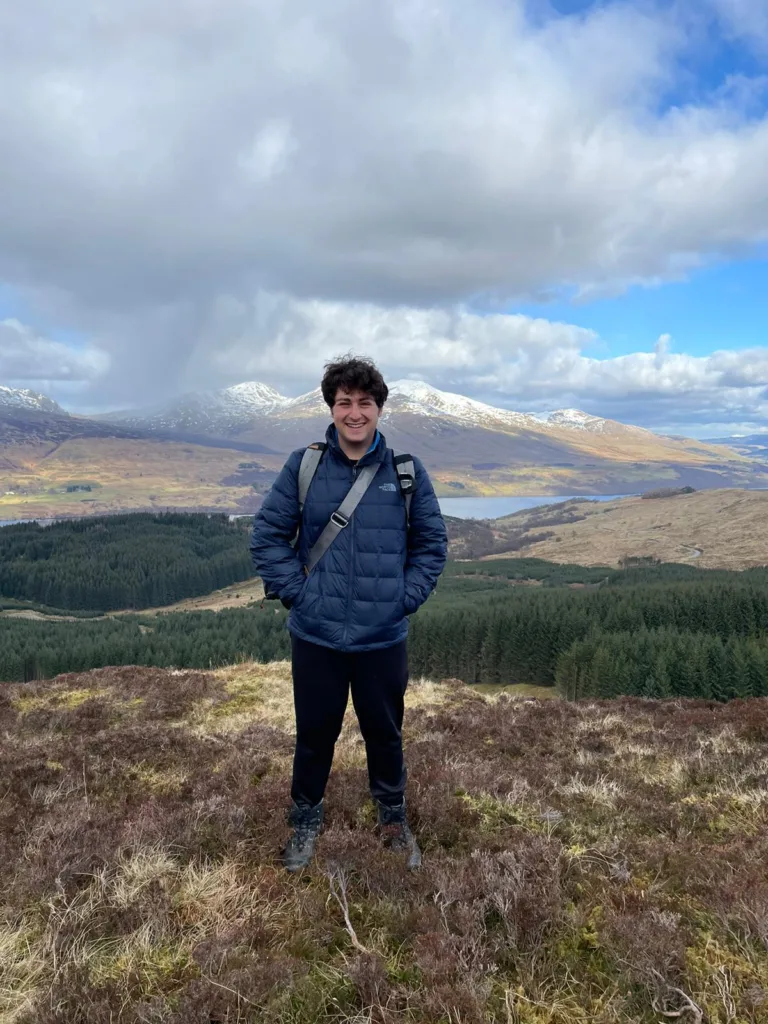
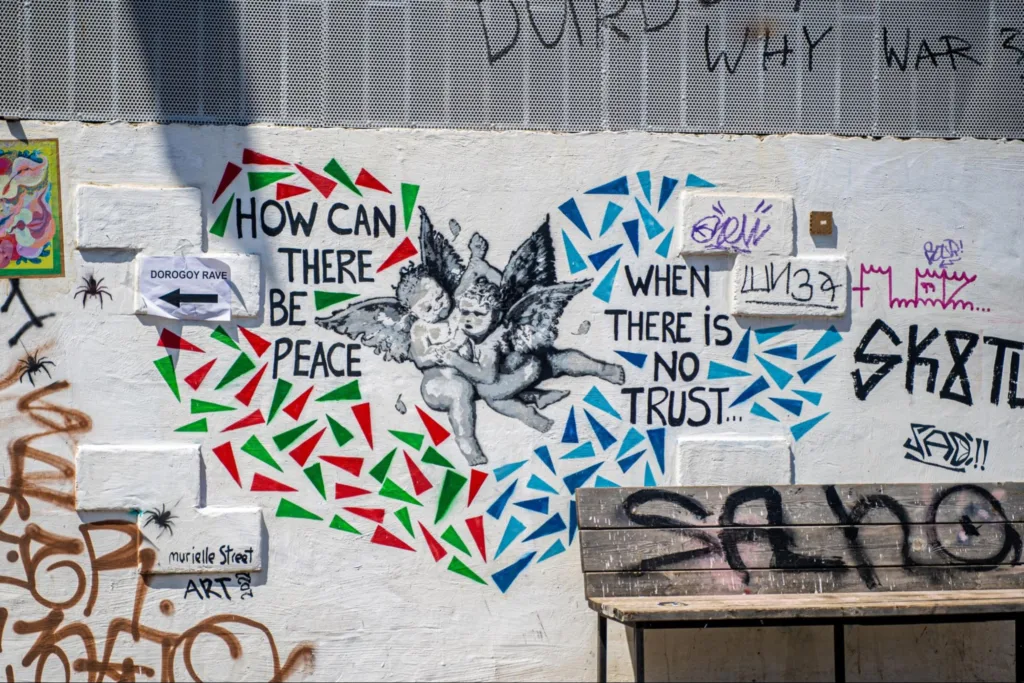
This past summer, I had the opportunity to be one of the 60 American and Israeli participants on the Israel Insight Fellowship, a trip sponsored by Hillel International to introduce students to new perspectives on the Israeli-Palestinian conflict. The week I spent in Israel was one of the most challenging but rewarding experiences in my life to date. While my support for Israel remained strong, I now have a deeper and more nuanced understanding of the conflict. This photo essay is part of my effort to process some of the toughest and most memorable moments.
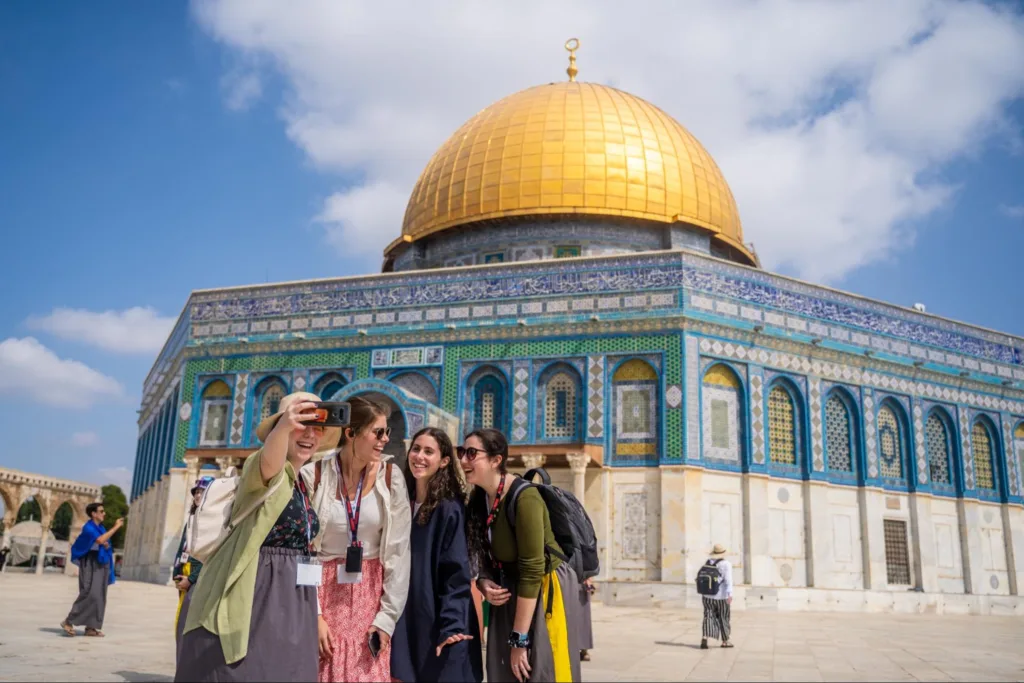
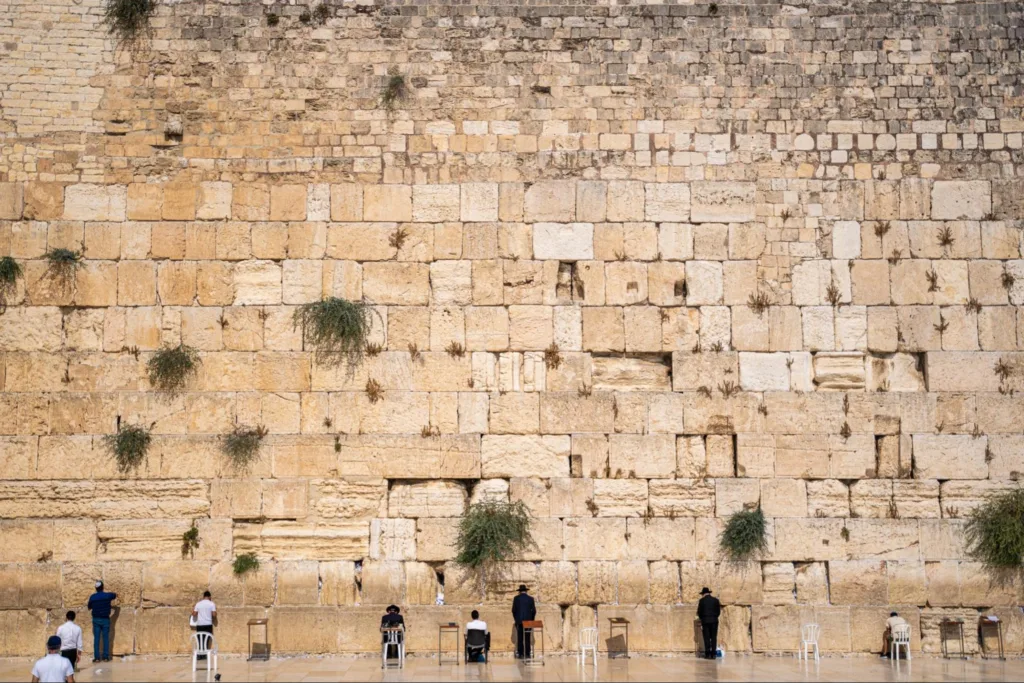
We started our day in the Old City of Jerusalem by visiting the Temple Mount and the Muslim Quarter with our Israeli-Palestinian guide, Ibrahim. “You are not welcome here,” he told us, adding that we should remove our Magen Davids, and that we must cover most of our body in order to follow Muslim custom. As we talked, we learned more about our guide’s life and his feeling that Jerusalem and present-day Israel is a homeland for his people. In the second half of the day, we explored the Jewish Quarter with one of our Israeli guides, Shira, who talked about her experience growing up in the Jewish Quarter and how much joy it brings to her when she returns.
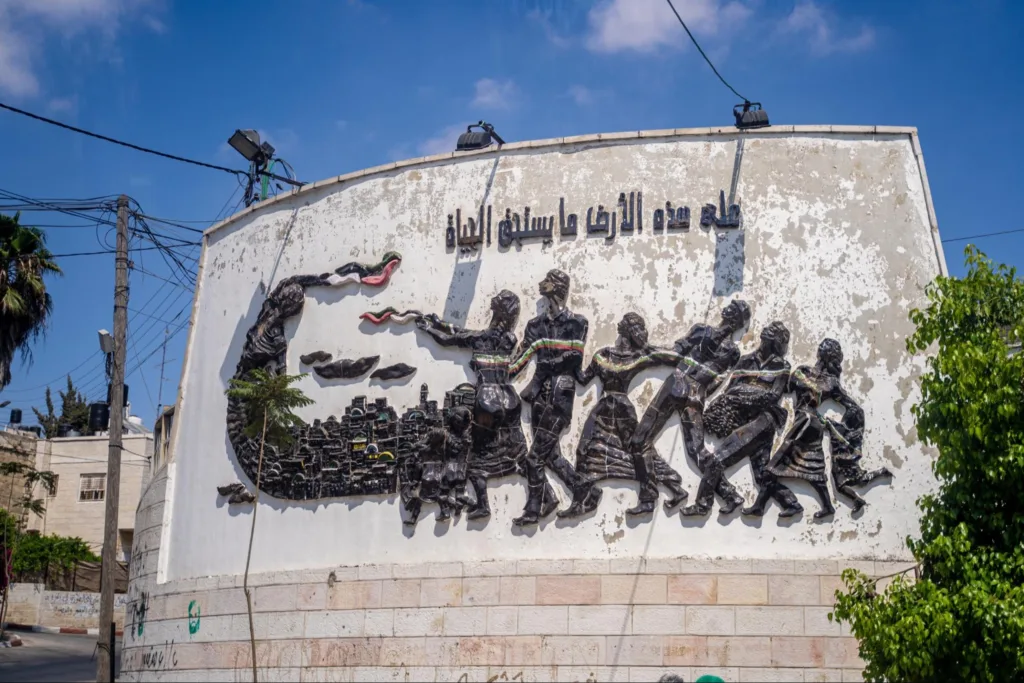
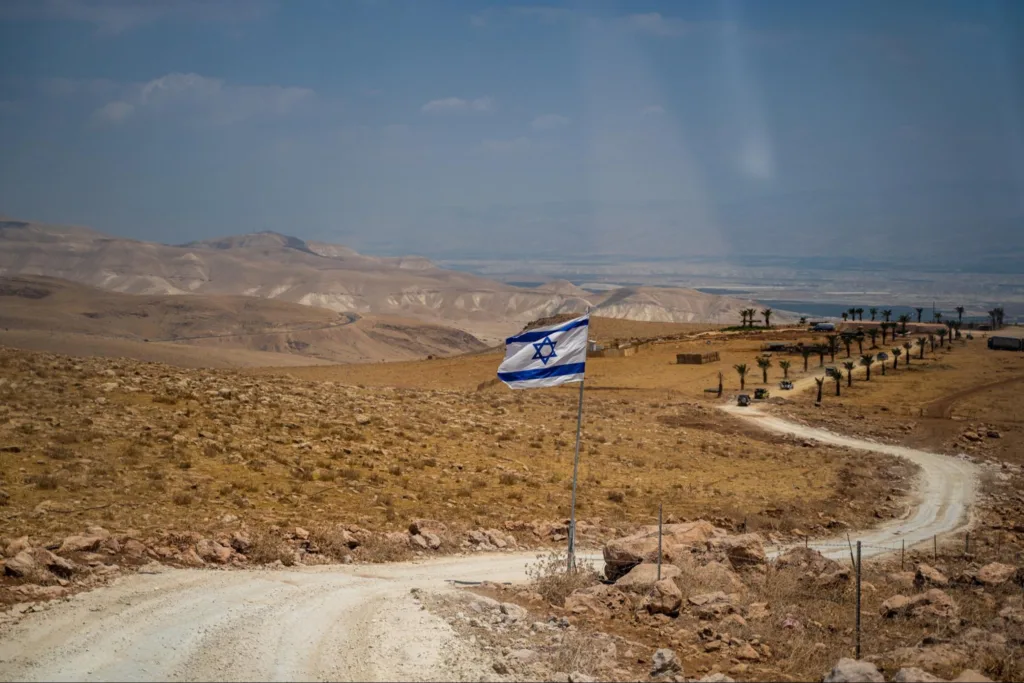
We traveled to the West Bank twice to visit Ramallah, the de facto capital of the Palestinian territories, and the Israeli settlement of Shiloh. When visiting Shiloh, we went on a wild Jeep tour with settlers who live there and glimpsed at a house built inside a haystack to “avoid the authorities.” Meeting settlers with religious beliefs very different from my own made me consider the political implications of their decision to live in Shiloh. Then, in Ramallah, we heard from the Deputy Foreign Minister of the Palestinian Authority, Amal Jadou, and a Palestinian businessman, Hussein. The Deputy Minister said that the conflict is “not religious,” which was the first time I heard that perspective. While I disagree with most of what they said, I now understand more about the Palestinian experience and viewpoints.
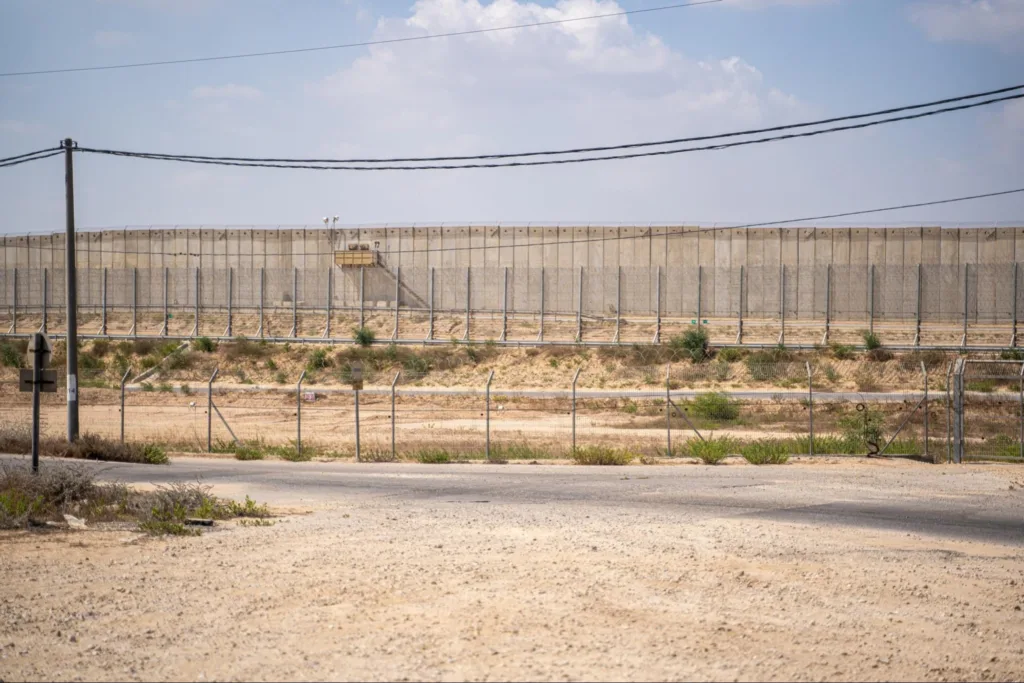
Towards the end of our time in Israel, we traveled to the Gazan border. At the Erez border crossing, our guide was able to connect with a Gazan who travels into Israel for work. The man, who didn’t share his name, told us that he is lucky to be able to travel into Israel to work in agriculture because unemployment is high in Gaza.
Before visiting Sapir College, Israel’s largest public university, which is located only two miles from the border, we visited the border walls, bristling with watchtowers, sensors, and anti-tunnel technology. Some of the students participating in the fellowship attend Sapir, and we spoke with them about their living with the constant possibility of a rocket attack.
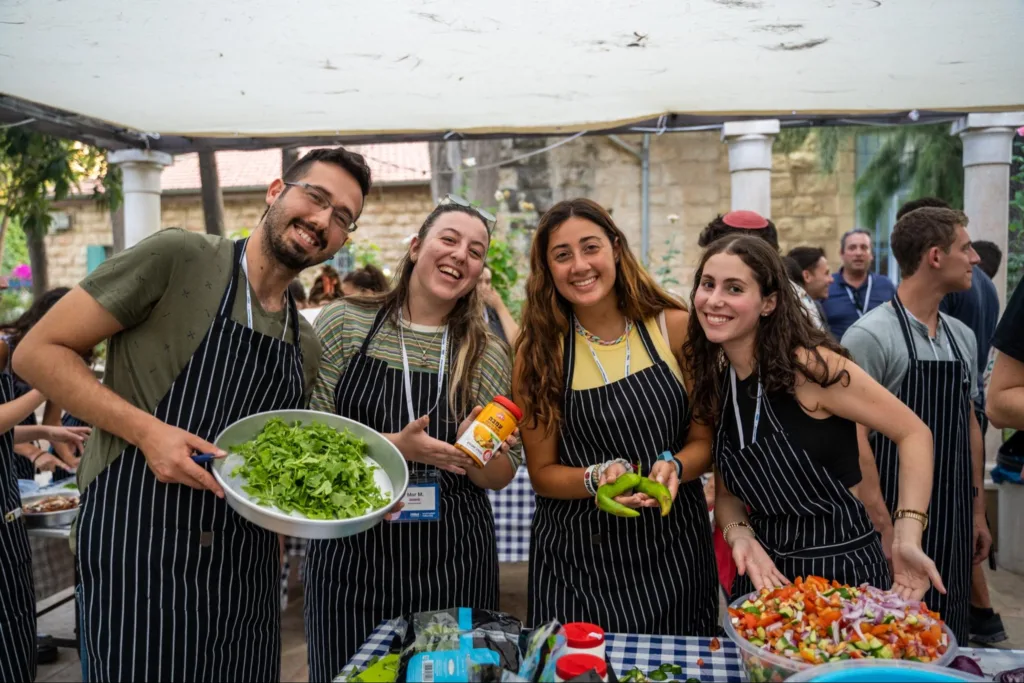
In between all the heaviness, we also had fun. We had long conversations about life and spent evenings on Tel Aviv beaches. We cooked and ate the best food in the world. I am happy to call my fellow Jewish student leaders friends, and we were also invited to be a part of the Israeli Leadership Network, which brings together leaders focused on Israel from across the United States. As I start my final semester at Elon University, I realize that my love for Israel is still strong, and now more grounded. Israel isn’t perfect. No place is. I hope to bring my new knowledge and experience to my campus. Thank you to Hillel International, the trip staff, my fellow student leaders, and all of the speakers for making this trip possible and helping me grow as a person and a Jewish leader.